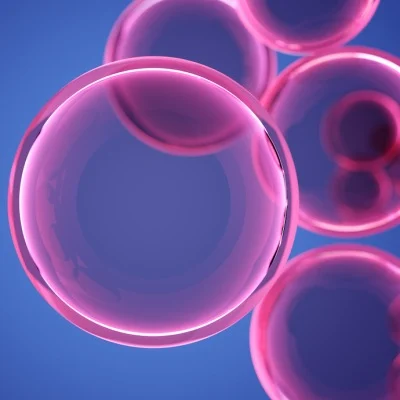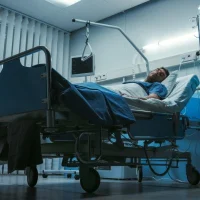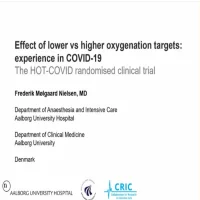Cell-based therapies, particularly mesenchymal stromal cells (MSCs), hold significant promise for treating acute respiratory distress syndrome (ARDS). MSCs exhibit therapeutic effects such as reducing inflammation, improving lung function, and promoting tissue repair. These cells can be sourced from different tissues, affecting their ease of harvest and potential effects.
Over 1,000 clinical trials involving MSCs are registered, with around 300 published trials demonstrating their safety and promising therapeutic benefits in specific conditions, leading to regulatory approvals in some countries.
In ARDS, ongoing preclinical and clinical studies, particularly in response to COVID-19, have accelerated understanding of MSC therapy's potential. This review discusses recent trials in both COVID-19-induced ARDS and traditional ARDS, drawing insights from other indications like graft versus host disease. Key unknowns, gaps, and challenges in clinical translation are identified, along with proposals to evaluate the therapeutic potential of MSC-based therapies for ARDS.
Several trials have investigated the efficacy and safety of MSCs in treating ARDS. In a small trial involving 12 ARDS patients, no adverse events were reported following a single low dose of adipose-derived MSCs. However, efficacy endpoints were similar between MSC and placebo groups. The START trial, involving 60 patients, demonstrated the safety of bone marrow-derived MSCs and suggested improved oxygenation and reduced IL-6 levels in patients with moderate or high cell viability.
The MUST-ARDS trial, involving cohorts receiving different doses of bone marrow-derived MSCs, showed numerical trends favouring MSC treatment, including lower mortality and more ventilator-free days, especially in patients with more severe hypoxaemia. Another trial in Japanese ARDS patients showed no significant difference in ventilator-free days between MSC and standard care groups, but the MSC group exhibited improved functional health. The ongoing REALIST trial aims to provide further insights into MSC therapy for ARDS.
A meta-analysis evaluating MSCs in COVID-19 patients found that MSC therapy reduced the relative and absolute risk of death compared to control groups. However, some studies included in the analysis were conducted before immunomodulation became standard care, potentially limiting generalisability to current practice.
Recent trials have provided mixed results. One trial investigating Remestemecel-L in 222 COVID-19 ARDS patients showed no difference in mortality at 30 days, though a subgroup analysis suggested potential benefit in younger patients. Another trial with umbilical cord MSCs in 45 COVID-19 ARDS patients found no difference in the primary outcome of PF ratio change by day 7. The REALIST-COVID trial, using ORBCEL-C, showed safety but no efficacy signal in clinical outcomes.
Meanwhile, cell-free products like MSC-derived extracellular vesicles (EVs) have been explored. A trial with ExoFlo® in 102 COVID-19 ARDS patients demonstrated potential benefits, particularly in younger patients with moderate to severe ARDS. A phase 3 trial of ExoFlo in classical ARDS is underway.
Recent phase 2 trials of MSCs in "classic" ARDS indicate that MSC therapy is safe, although efficacy signals vary. The MOST-ARDS trial using MULTISTEM® cells showed promising efficacy, while the START trial suggested potential benefits in reducing lung permeability and inflammation. However, in COVID-19 ARDS, early indications of efficacy have waned with evolving standard care, making further MSC trials unnecessary given the availability of other effective therapies and vaccines.
Delivery challenges persist, such as maintaining MSC viability during administration and determining optimal cell sources and dosages. Heterogeneity in MSC tissue sources and dosing regimens in COVID-19 studies complicates interpretation. Long-term follow-up, as seen in the REALIST trial, is crucial to identify potential adverse outcomes like malignancy, although overall MSC safety remains favourable.
Insights from GvHD studies, where MSCs are licensed, may inform ARDS treatment. Identifying subpopulations likely to benefit from MSC therapy, such as hyperinflammatory phenotypes, is promising, though caution is warranted due to potential harmful effects in profibrotic lung environments.
Clinical studies of MSC therapies for ARDS have not yet fulfilled their preclinical promise due to various factors such as differences in MSC tissue source, isolation and processing methods, cryopreservation strategies, and dosing regimens. To address this, a 'core protocol' for evaluating MSC therapies for ARDS is proposed, aiming to standardise future studies and enable meaningful aggregation of results in meta-analyses. Key aspects of this core protocol include detailed characterisation of the MSC product, with umbilical cord-derived MSCs being a promising option due to ease of isolation and availability. Cell-free alternatives like MSC-derived EVs should be explored further.
Regarding dosing, a minimum of 2 million MSCs per kg body weight and multi-dose regimens should be tested, focusing on intravenous administration and early ARDS stages. Identifying MSC-responsive populations within the ARDS cohort is crucial, with treatment and standard care groups receiving optimal current therapies. Studies should be adequately powered to measure clinically meaningful outcomes and collect samples for mechanistic studies.
Standardising protocols and identifying responsive subpopulations are crucial steps to unlock the therapeutic potential of MSC-based therapies for ARDS.
Source: AJRCCM
Image Credit: iStock










